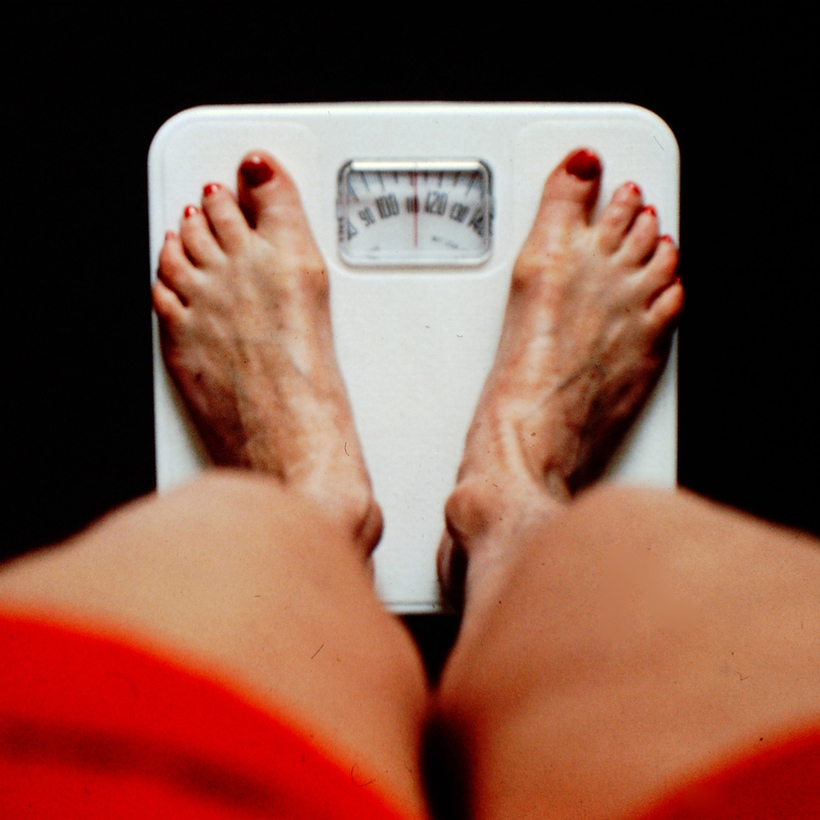“Honestly, I’m always thinking ’bout my weight,” sings British pop star of the moment Charli XCX on “Rewind,” a song from her chart-dominating album of summer, Brat. And, really, aren’t we all? It appears so—at least according to this year’s buzziest nonfiction releases, many of which explore weight stigma and eating disorders and how they are entrenched and encouraged in our culture.
Most spectacular was Emmeline Clein’s lyrical, deeply researched essay collection, Dead Weight, which followed philosopher Kate Manne’s siege on fat-phobia, Unshrinking. The latest in this growing canon are Vogue culture writer Emma Specter’s More, Please, a memoir out this week about her binge-eating disorder and changing relationship to weight, and Maintenance Phase, Aubrey Gordon’s history of the weight-loss and wellness industries, publishing later this year. (Full disclosure: Specter is the daughter of AIR MAIL Co-Editor Alessandra Stanley.)
In their books, the authors assert that they’re sick of everyone being sick, stuck in a world where thin is always in. We are, as Manne writes in Unshrinking, being “mentally colonized” into “resisting ourselves and our appetites.” And enemies have only advanced their propaganda. Lately, “Big Pharma has a different fantasy to sell us, a syringe of chemicals that … promises to suck the yearning to consume right out of us instead,” Clein writes in Dead Weight.
With the overwhelming rise in weight-loss drugs and celebrities squeezing into ever shrinking shapewear, there’s a sense of fatigue regarding keeping up the whole charade—a re-assessment of expending energy on achieving thinness over everything, a collective eyebrow raise at the inundation of diet-culture messaging being leveled at us from every angle, even after decades of feminist advancement. Perhaps the Ozempic era has elicited a cultural pendulum swing, bringing in a spate of writers wielding the keyboard as their weapon, ready to feed us self-acceptance and systemic change—a narrative finally worth consuming.
The authors are sick of everyone being sick, stuck in a world where thin is always in. And the rest of us are over it, too.
In “Girl, So Confusing,” a remix from Brat, the pop star Lorde sings: “I’ve been at war with my body / I tried to starve myself thinner / And then I gained all the weight back / I was trapped in the hatred.” In reading, we have a much-needed chance at being set free.
“Through my own adolescence, fat was the third rail … the one thing I knew I couldn’t be if I wanted to be loved,” Specter writes in her memoir. It’s an all-too-familiar framework, a prison of the mind: “Girl is intelligent, so she notices that she is not perfect and decides to become pure,” Clein writes, outlining that an eating disorder is a logical reaction to a world of thin worship.
To me, these body books and their mainstream appeal—I’ve seen Clein’s at the front of virtually every bookstore I’ve perused this year—signify an intellectual shift, one that says we’ll no longer sit idly by.
The facts, at the very least, speak to the urgency of the issue: 9 percent of people in the U.S. (roughly 28.8 million people) will have an eating disorder at some point in their lifetime, per a Harvard School of Public Health study. Nearly 13 percent of teenagers will have a diagnosable eating disorder by age 20, though the more accurate count is likely much higher, and those numbers have only been on the rise since 2020, according to the Centers for Disease Control and Prevention.
“The statistics are truly astounding,” Clein tells me. With her work, she wants to convey that “it’s not your fault if you’ve ever hurt yourself in an attempt to embody a beauty standard that you politically disagree with.” But in a time when diet and beauty culture are still being shoved down our collective throats, can we really write our way into a better world?
“Through my own adolescence, fat was the third rail … the one thing I knew I couldn’t be if I wanted to be loved.”
Christy Harrison, a dietitian and the author of The Wellness Trap, published last year, thinks so. These books start conversations, engage new ideas, and garner press attention, all of which are important in reshaping culture, she says.
Books about the body and our hatred of it have entered the Zeitgeist before, of course—think Milk Fed, by Melissa Broder, Hunger, by Roxane Gay, or Thick, by Tressie McMillan Cottom. While it’s difficult to measure their direct impact, many earned widespread exposure in the form of rave reviews, media “best of” lists, and prime, front-of-shop bookstore real estate.
And yet a literature review conducted by the American Society for Nutrition revealed that the prevalence of eating disorders doubled worldwide from 2000 to 2018, despite the fact that we’re more aware of them than ever.
“To truly move the needle, we need systemic change at the level of health care and research,” Harrison says. “These are places where diet culture lives, that, in many cases, have not fundamentally shifted.”
The 2024 writers call for just that in their works. Manne writes that fat-phobia is a “powerful proxy—and outlet” for bigotry such as racism, misogyny, and classism, which are still widely practiced in medical settings. For eating disorders, “the scale and severity of the problem begs the question of why we continue to research disproven paradigms and treat patients using failing models,” Clein writes.
At the very least, companies perpetuating and profiting off body panic should be held accountable, and an anti-diet, fat-accepting ethos should be standard practice in medicine, education, and beyond. “We cannot genuinely facilitate recovery when we still believe that dieting is not a dangerous problem,” Clein adds.
After all, as Specter puts it, “it’s very hard to do anything, let alone organize to make systemic change … when you’re fucking starving.”
Madeline Howard is a Brooklyn-based writer and editor. Her work has appeared in Vogue, Esquire, and The Los Angeles Review of Books, among other outlets

